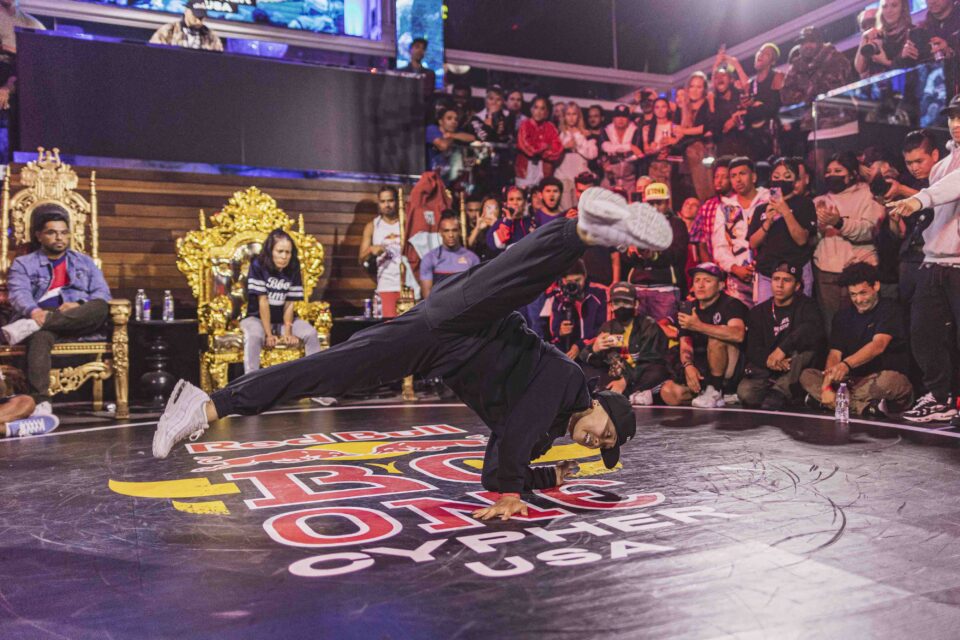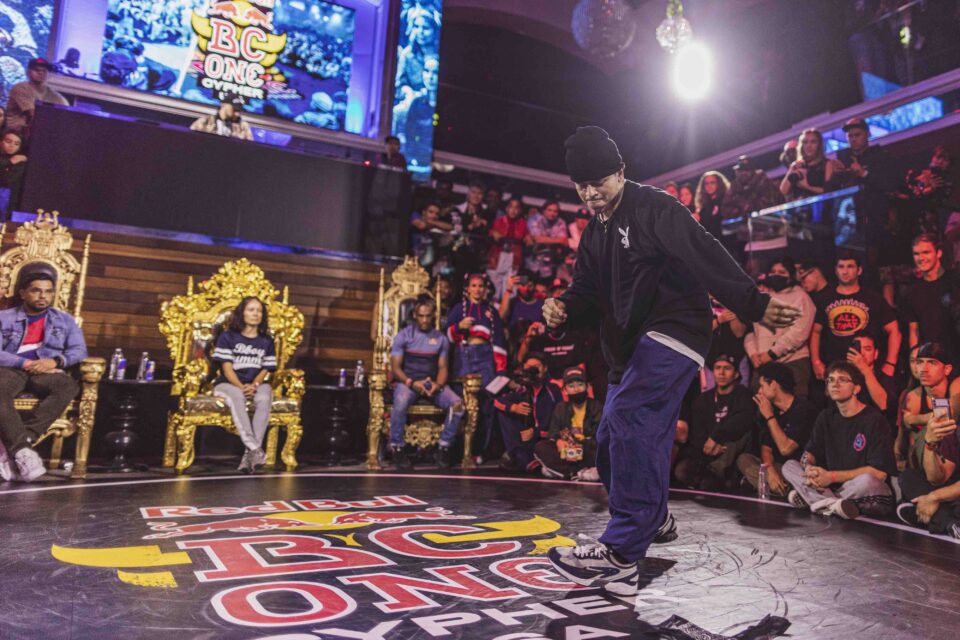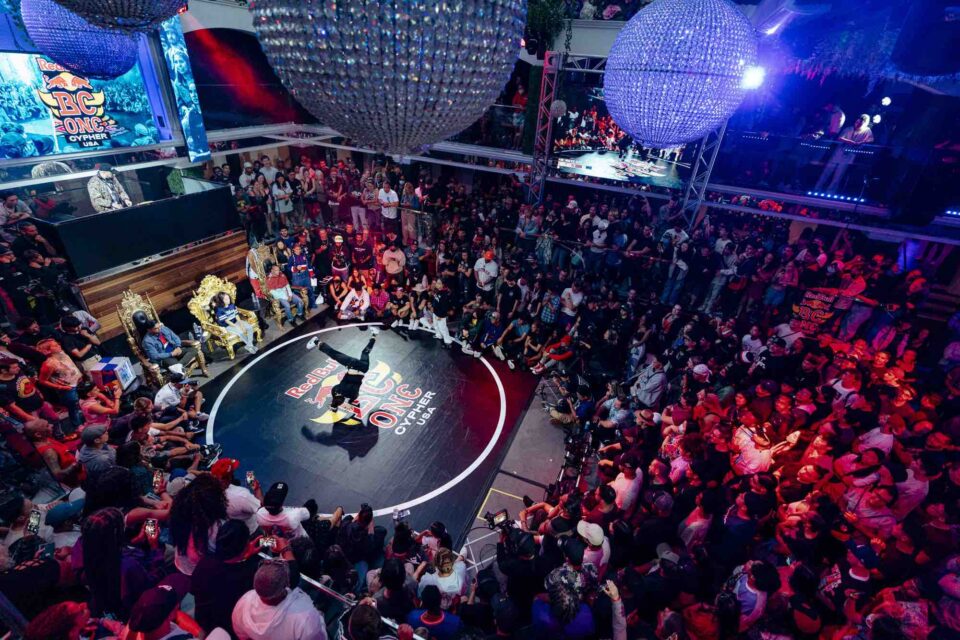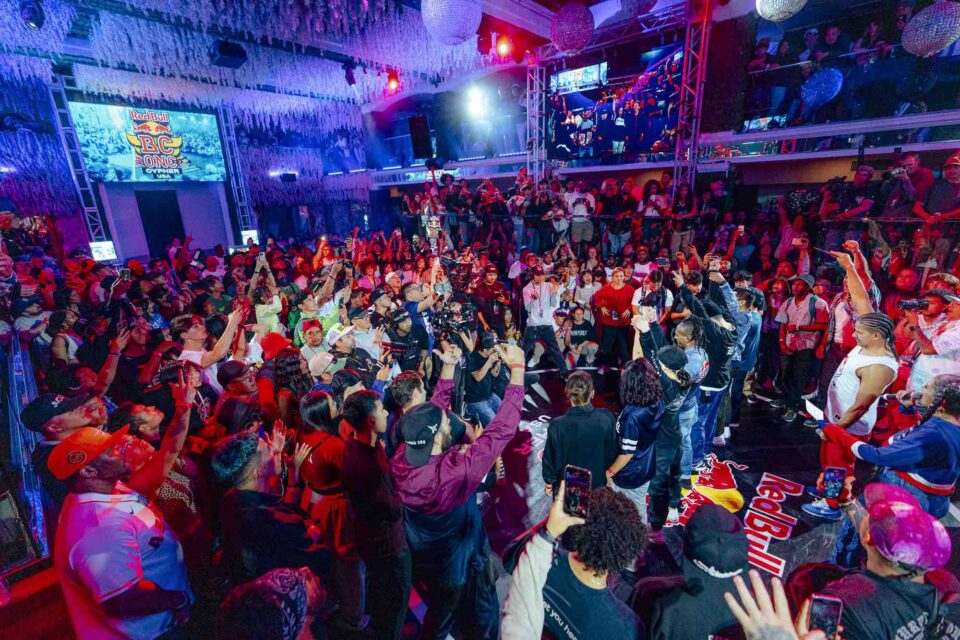Grace “Sunny” Choi has participated in dozens of breakdancing competitions, but something was significantly different about the Red Bull BC One Cypher USA in Los Angeles last month—it was the first time her mother had been in attendance. “That really set me up mentally to be in a really good place,” says Sunny, who took first place in the B-girl competition and will compete in New York City in November in the Red Bull BC One World Finals with an Olympic berth on the line (breaking is scheduled to make its Olympic debut at the Paris 2024 games). “My mom has never been supportive of my breaking, up until now,” Sunny continues. “She's just been like, ‘You need to move on with your life. You need to find yourself a husband, just get married. You need to have kids, and where's your house?’ My whole life has basically been, ‘You need to do everything the way things should be done.’”

Francisco “Ali” Acuna Flores, who won the B-boy bracket at the event, dedicated his victory to his father, who passed away less than two weeks before the competition. Ali hadn’t seen his father in 20 years, but they kept in touch and his father would watch videos of Ali’s performances. “I know that he was proud of what I was doing,” Ali says. “I think he would have been proud of my achievements.”
“I like practicing by myself because I can just get in the zone. I don’t really have to worry about anyone else but myself.”
— Francisco “Ali” Acuna Flores
Ali grew up in Mexico City and moved to Salt Lake City with his mother when he was 14. Shortly before his move to the US, Ali had become smitten with breakdancing. Once in Utah, he started going to his local Boys & Girls Clubs of America branch where he befriended several kids and became increasingly dedicated to breakdancing. As he honed his craft over the next decade-plus, Ali became a standout in SLC’s small breaking scene. Despite enjoying the camaraderie with his friends, he settled into a particular routine. “I like practicing by myself because I can just get in the zone,” Ali says. “I don’t really have to worry about anyone else but myself.” Once Ali started traveling for competitions, he realized Utah provided distinct benefits. Given the altitude, he noticed he didn’t get tired as quickly as some of his opponents who would sometimes cramp.
Sunny’s advantage came from a different source: She started as a gymnast. Thus, she was already physically prepared for the rigors of breaking. Sunny also enjoyed moving from the overly rigid world of gymnastics to the virtually unencumbered realm of breakdancing. “I always describe breaking as a creative outlet for me,” she says. “While I don't always move in the most musical or creatively free way, one of the outlets for me is in the creation process of breaking. I love to figure out movements that are new for my body, that are unique to me. Having gone down that road for my whole breaking career, I have a [dance] vocabulary that’s pretty large, a vocabulary of things that I've created. One of the things that sets me apart is that in these later battles, once you get into the high number of rounds, I'm still introducing new movement and new tricks, whereas others are kind of falling back and just doing variations of what they've already done.”

Sunny indeed digs into her vast reservoir of moves while competing. She estimates that only about 20 percent of what she does is planned (by comparison, Ail says approximately 40 percent of what he does is planned). Improvisation plays a major role in their dancing, even though most breakers don’t rely as much on freestyling. “There are some people who are very scripted, and you can feel it because they don't actually react to the music,” Sunny says. “They kind of go through their emotions and do their movements. Sometimes they'll get lucky and be in the mood of the beat. Other times, it's almost like the dance is completely pulled away from the music. The beauty of freestyle is there's so much spontaneity, and there's also that one in a million move that you hit on the beat that makes the entire round. It could be the round of the night and it's because you were open to allowing those accidents to happen.”
“I love to figure out movements that are new for my body, that are unique to me. Having gone down that road for my whole breaking career, I have a [dance] vocabulary that’s pretty large.”
— Grace “Sunny” Choi
Accidents, ironically, led to Sunny’s breakdancing career. After enduring multiple gymnastics injuries, she was no longer able to perform. While studying at the University of Pennsylvania, she was in the process of finding herself when she stumbled into breaking. “It provided everything that gymnastics did in terms of physical challenge and the mental work, but also that creative piece that I never got before,” she says. “It was there. I didn't realize I ever needed it or that I even had that creative piece in me. It was like a marriage of everything that I was looking for.”

Somewhat paradoxically for someone who was used to performing gymnastic routines in front of others, Sunny was initially shy about breaking. That’s why she started wearing a hat while she was breaking. True, it has functional components—preventing hair loss during headspins and otherwise keeping her hair secure, among others—but wearing a hat served another, bigger part in Sunny’s breaking evolution. “When I started breaking, I was really shy. I would just hide in the corner and not let anyone see me break. I would just sit there while everyone else danced in the room and just watch. Then I would go home and practice in my room. So when I started wearing a hat, it helped to make me feel a little bit like I had my own little world. It actually limits your vision, but it also helped me hide a little bit. It helped me break through some of the shyness in the beginning.”
Now comfortable in her own skin and with the support of her mother, Sunny is looking forward to the next round of qualifiers for the Olympics. Breaking making it to such a prestigious world stage helped Sunny’s mother better appreciate what she does. It’s also likely given the sport increased standing throughout the world. “With breaking going to the Olympics,” Sunny says, “I think it's giving it credibility that it never had before.” FL










